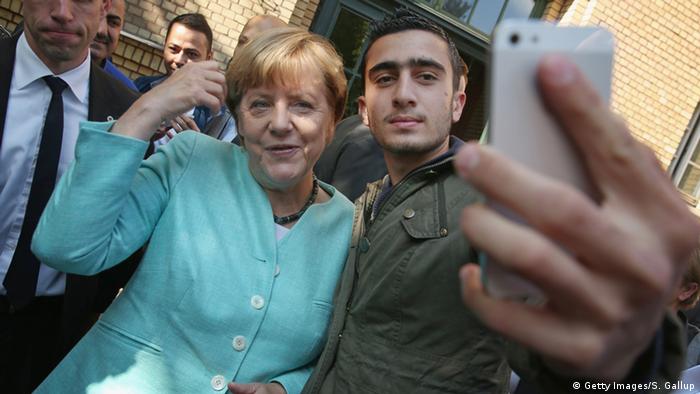The hopes and fears of Syrians in Germany
REFUGEES
The hopes and fears of Syrians in Germany
What do Syrians that already live in Germany think about the many new refugees arriving here? A recent study tells us, and also contains a surprise: their opinion about an upper limit for refugees
"Germany can tackle the problem of taking in so many refugees," say 71 percent of Syrian immigrants. However, two-thirds are of the opinion that that can only happen if a number of things change in government and society.
Detlef Pollack, a sociologist of religions, recently headed a study conducted by the University of Münster. In an interview, he told DW: "One can imagine that those Syrians that have already been living here for a while are focussed on integration problems that exist in the job market or welfare programs."
Pollack's research team interviewed some 500 people of Syrian descent living in Germany for the polling institute TNS Emnid. Those interviewed have lived in Germany for at least one year, the overall average residence of those polled was 20 years. About 20 percent were born in Germany, half are German citizens, and third are Syrian citizens. Eleven percent hold both German and Syrian passports.
Expectations and concerns
Professor Pollack says that the poll's results point to three issues that Syrians living in Germany see as critical when they think about new arrivals. Firstly, more than half of those polled think that there should be an upper limit to the number of asylum seekers that Germany accepts. Only then, they say, can integration truly succeed. "Secondly, they probably sense that the new arrivals may represent a certain amount of competitive pressure as regards their own existence," according to Pollack. About a third of those interviewed expressed such concerns. And lastly: "There is also a rather high level of fear that terrorists may arrive among the refugees."
These fears largely overlap with the fears and expectations of those that Pollack refers to as "the majority German society." A representative survey recently commissioned by the German public television broadcaster NDR for its political news program "Panorama" showed similar results to that of the University of Münster poll - although it was conducted among the entirety of German society. Accordingly, about half of those Germans that participated were of the opinion that integration could only succeed if numbers of new immigrants were limited.
Positive examples of integration
For Pollack, these overlaps in opinion are a positive sign: "That shows how well-integrated Syrians living here really are, despite existing problems." Such a result could be "an important signal" in the debate surrounding refugee- and integration policy, says the sociologist. It sends the message that: "Integration can work, and the Syrian men and women living here are a prime example of that fact."
Indeed, most Syrians in Germany have a positive outlook for the future. Openness and solidarity toward new arrivals was a prevailing sentiment among those interviewed for the study. That said, faith in Angela Merkel's policies is high as well: 83 percent of those polled support the chancellor's approach. Pollack concludes: "Regardless of all the problems, attitudes on the whole are very constructive."


Comments